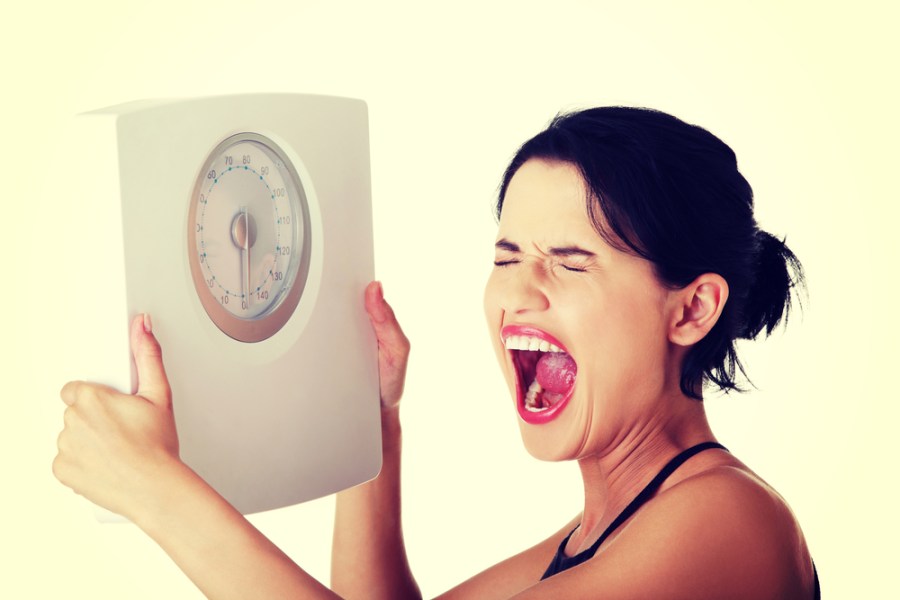If you’ve put on weight recently without changes to your diet or exercise regime, it can feel very frustrating. But unexplained weight gain could potentially be a symptom of an underlying medical issue. Here are some common health concerns that could be behind your weight gain. If you have any concerns, make sure to visit your GP.
An underactive thyroid can cause weight gain
Hypothyroidism is when your thyroid gland doesn’t produce enough hormones, which help to regulate your metabolism. Therefore it makes sense that one of the first signs of the condition is weight gain. Other symptoms may include tiredness, depression, constipation, muscle cramps, dry skin, sensitivity to cold or irregular periods. Diagnosis is simple, as it just involves a blood test.
But fear not, once diagnosed it can be controlled with daily hormone replacement tablets called levothyroxine.
Weight gain from medication
Various types of medication, such as insulin for diabetes, beta-blockers or steroids, can cause you to put on weight as they increase your appetite or lower your metabolism, so it’s worth talking to your GP about creating a healthy diet.
Polycystic ovary syndrome (PCOS) and weight gain
PCOS is a very common condition, thought to affect around one in five women in the UK. One of the symptoms of PCOS is gaining weight around your waist, as well as trouble getting pregnant, irregular periods or excess body hair. The causes of the condition are unknown, but it often runs in families and is thought to be a hormonal issue. PCOS can’t be cured, but there are medications to help manage symptoms. With treatment, most women with the condition are able to get pregnant.
Cushing’s syndrome can increase weight
Cushing’s syndrome is a rare condition that’s caused by high levels of cortisol. It can either come about as a result of a tumour or as a side effect of long-term steroid treatment.
Weight gain is particularly common on your face, chest and stomach, because cortisol affects those areas. A red, puffy face or build-up of fat on the back of your neck and shoulders while your arms and legs remain slim are common indicators. Other symptoms include depression, purple stretch marks, skin that’s easy to bruise and low libido.
Depression and anxiety lead to weight gain
If you’re feeling very stressed or unhappy, your body might be flooded with adrenaline or cortisol, both of which can lead to weight gain. Couple that with sleepless nights – which raise ghrelin (the hormone that signals when it’s time to eat) and lower leptin (which tells you when you’re full) – and you’re likely to be more hungry and less able to make healthy choices.
Weight gain around perimenopause
If you’re in your mid thirties or forties and have unexpectedly gained weight, it could signal the start of the perimenopausal phase, which can play havoc with your hormones. Other symptoms include loss of libido, irregular periods, hot flushes or mood swings.
- Manage the menopause with exercise
- Try adaptogens to balance your hormones








